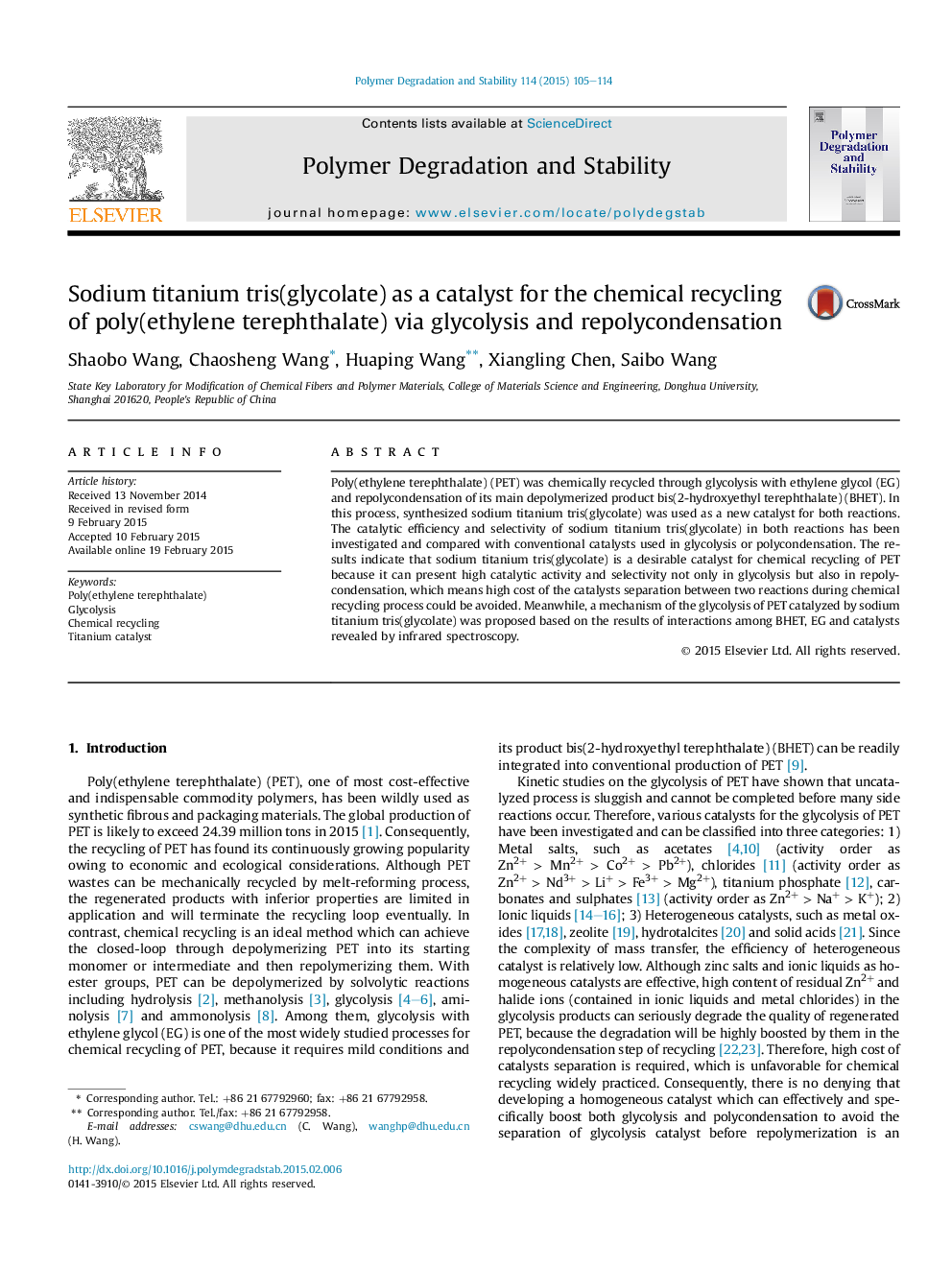| کد مقاله | کد نشریه | سال انتشار | مقاله انگلیسی | نسخه تمام متن |
|---|---|---|---|---|
| 5201591 | 1502899 | 2015 | 10 صفحه PDF | دانلود رایگان |
Poly(ethylene terephthalate) (PET) was chemically recycled through glycolysis with ethylene glycol (EG) and repolycondensation of its main depolymerized product bis(2-hydroxyethyl terephthalate) (BHET). In this process, synthesized sodium titanium tris(glycolate) was used as a new catalyst for both reactions. The catalytic efficiency and selectivity of sodium titanium tris(glycolate) in both reactions has been investigated and compared with conventional catalysts used in glycolysis or polycondensation. The results indicate that sodium titanium tris(glycolate) is a desirable catalyst for chemical recycling of PET because it can present high catalytic activity and selectivity not only in glycolysis but also in repolycondensation, which means high cost of the catalysts separation between two reactions during chemical recycling process could be avoided. Meanwhile, a mechanism of the glycolysis of PET catalyzed by sodium titanium tris(glycolate) was proposed based on the results of interactions among BHET, EG and catalysts revealed by infrared spectroscopy.
Journal: Polymer Degradation and Stability - Volume 114, April 2015, Pages 105-114
